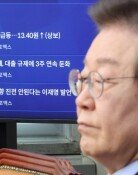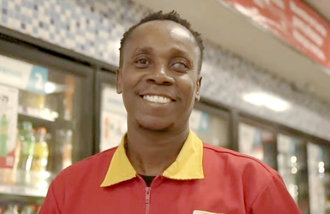The inner child: Perhaps the key to lasting success
The inner child: Perhaps the key to lasting success
Posted August. 21, 2024 07:48,
Updated August. 21, 2024 07:48
Novak Djokovic, the Serbian tennis star who finally won Olympic gold in men’s singles after five attempts, posted an image of himself on a bike ride to Instagram on Sunday, captioned: "Back in training. New goals ahead. Next stop, Tour de France. I’m coming for you, Tadej Pogacar!" Pogacar, the dominant cyclist who has won the Tour de France three times, including in 2024, is currently the best in the world.
For Djokovic, also known as the "Joker," such playful banter is typical. However, this lighthearted side doesn’t fully capture the depth of the tennis legend. The U.S. Open, the final major event of 2024, begins on next Monday. Djokovic isn’t just laughing and joking around — he’s preparing to become the first tennis player in history to win 25 major titles.
As a journalist covering the Paris Olympics, I was struck by how quickly Djokovic could shift from intense seriousness during training to making funny faces moments later. Whenever he missed a shot—rightfully so, given that the ball was speeding in the opposite direction of his movement—he would pause and reflect, staring off into the distance. This was just seven weeks after knee surgery, and it was his first training session for adaptation. Even with the stands empty, Djokovic reacted to every ball as if he were playing in a final, his emotions intense.
The real surprise came after two hours of training. Djokovic tossed two balls over the net to the opposite court, followed by the two staff members doing the same. It turns out that they were competing to see whose ball would land closest to the baseline. When one of the staff’s balls crossed the line, Djokovic didn’t hesitate to call it "Out!"
Seeing the greatest tennis player of all time give his all in such a trivial bet was almost endearing. It reminded me of something Djokovic once said. In 2022, he was deported from Australia before the Australian Open for not being vaccinated against COVID-19. Later, he reflected, "I play tennis because I still feel connected to the inner child—the four-year-old boy who picked up a racquet and said, ‘I love this sport. I want to play it all day.’"
Most professional athletes start playing the sport because it’s fun. But it's easy to lose that sense of enjoyment when sports become a career and competition is a daily grind. Many young athletes retire or fall into a slump soon after reaching the pinnacle of success. The pure joy of childhood often fades under the weight of others’ expectations and career pressures. Yet Djokovic, who has already achieved everything, says he wants to compete in the 2028 Los Angeles Olympics. He’ll be 41 years old then.
In his essay collection "Beautiful Ending," the Buddhist monk Beopjeong (1932–2010) wrote, "We age when we abandon our dreams and ideals. Time may leave wrinkles on our faces, but losing interest in our work wrinkles the soul." Djokovic may have a few more lines on his forehead, but his soul seems as vibrant as ever. While people focus on his still-impressive physical abilities, his true strength may lie in his ability to keep his inner child laughing every day, regardless of what the world says.
Headline News
- Harris ‘first female president’ vs. Trump ‘again 2016’
- N. Korea builds 11-meter rampart after road demolition
- Democratic Party eventually agrees to abolish financial investment income tax
- Drug smuggling is seized twice a day on average this year
- Surrounded by ‘uniforms,’ NHL’s first female coach ‘time-out’







